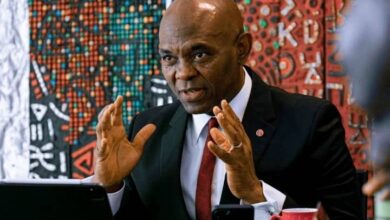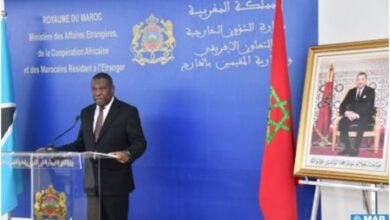[INTERVIEW] Seoul ready to listen to foreign residents
 |
| The Seoul Metropolitan Government seeks to attract more foreign tourists, taking advantage of the popularity of K-pop. / Korea Times file |
By Kang Seung-woo
Seoul is becoming increasingly cosmopolitan, with the number of foreign residents and visitors rising, so the city government is working hard to improve the quality of life for them.
“I can clearly say Seoul is becoming more global. More than 420,000 foreigners live in Seoul and the number is increasing,” Seoul Mayor Park Won-soon said in an interview with The Korea Times at his office, Nov. 27. The interview was conducted in English and is available on The Korea Times’ YouTube channel.
“In that respect, I believe we should be ready to embrace foreign residents and that is why we have introduced a system of self-governance through the foreign residents representative assembly meeting, or town hall meeting. In this mechanism, they can bring up issues related to their lives in Seoul and reach the Seoul Metropolitan Government directly.”
To help foreign residents, the city government has run the Seoul Global Center since January 2008. It is a multi-lingual, comprehensive support body offering various services to enable foreign residents of Seoul to lead a hassle-free life. Its services are divided into three streams: education programs such as Korean language classes; living support programs such as legal and psychological counseling; and business support programs helping foreign residents start a business.
In addition, there are seven Global Village Centers across the capital that serve as community centers for foreign residents.
“We have many different kinds of global centers like the global business center or the special center for Mongolian and Central Asian residents in Seoul. In that sense, I am ready to discuss with ethnic groups about what their difficulties are and solutions to the problems at the town hall meeting,” Park said.
“My aim is not to assimilate them into the Korean community, but instead, we should respect their identities and preserve their way of life. Also, we should teach and try to preserve their lives even into next generations. That is the real meaning of diversity.”
 |
| Seoul Mayor Park Won-soon speaks during an interview with The Korea Times at his office, Nov. 27. In the back is a display board which shows real-time information on various situations taking place in Seoul, such as traffic flow and fine dust levels. / Korea Times photo by Choi Won-suk |
Hallyu-motivated tourism
Besides improving foreign residents’ lives here, the mayor is also trying to promote the capital as a holiday destination to international travelers.
“Touring Seoul is like an onion that you keep peeling away layer after layer. When foreign tourists come to Seoul, they will likely want to experience the city more,” Park said.
“The city combines past, present and future landscapes that cannot be found elsewhere. In addition, the street food culture and hallyu, highlighted by K-pop and K-beauty, are luring more foreign travelers to Seoul.
“Seoul is a destination for many tourists and this year, the number of foreign tourists is expected to reach 14 million,” Park said. The number would be an all-time high, topping the 13.45 million in 2016.
Even with Seoul becoming such a popular tourist destination, the city government is continuing to work to boost tourism competitiveness.
Given that K-pop is still the biggest selling point, the city government is seeking to make Seoul a global music city, where foreigners with few opportunities to watch K-pop performances in person can watch them at various venues and enjoy music festivals all year round. The local government plans to invest 500 billion won ($421 million) on the “Global Music City, Seoul” project.
“Foreigners visiting Seoul will experience musical resources at any time. We are set to make Seoul a music paradise,” the mayor said.
Under the project, it opened a music-themed complex on Nodeul Island, an uninhabited artificial island on the Han River that is located between Seoul’s Yongsan and Dongjak districts, in September. The new cultural complex includes an outdoor music space that can accommodate about 3,000 people and a 456-seat live pop concert hall.
By December 2023, Seoul City will also build the 18,400-seat Seoul Arena, the first national concert hall for K-pop performances, in Changdong, northern Seoul, and by 2024, an auditorium in the southwestern part of Seoul and a concert hall for classical music.
 |
| Seoul Arena, the first national concert hall for K-pop performances, will be built in Changdong, northern Seoul, by December 2023. / Courtesy of Seoul Metropolitan Government |
Seoul leading sustainable cities initiative
Seoul has made its mark as a global leader in sustainable city development by bringing different packages of policies to the world.
“We are becoming a model for cities around the world,” Park said.
His efforts to fight the climate crisis and achieve energy self-sufficiency, among others, are gaining traction.
“The main issue of cities is to tackle climate change and it is the issue of the current and next generations. Sustainability cannot be emphasized too much and I have designated the issue of climate change as the most important to solve,” he said.
According to the mayor, cities that account for 2 percent of the Earth’s area are responsible for 80 percent of global carbon emissions, but at the same time, it is cities that are capable of tackling climate change.
In 2015, the local government declared the Promise of Seoul, a comprehensive strategy and integrated approach to cover all areas of climate change, including energy, air quality, transportation, resource recycling, water, ecology, urban agriculture, health, safety and urban planning.
“The Promise of Seoul will reduce CO2 emissions by 20 million tons by 2030. Really great ambitions,” he said.
“Now, the German environment ministry liked this idea and asked Seoul to expand it to many other developing cities like Vietnam’s Hanoi, the Philippines’ Pasig and Indonesia’s Jakarta. Also, as a former chairperson of ICLEI-Local Governments for Sustainability, which is the biggest city alliance, I am excited to make Seoul more sustainable and share our experience with other cities around the world.”
Seoul is also seeking to promote its sustainable energy production and saving system, highlighted by its One Less Nuclear Power Plant initiative, launched in 2012 to reduce energy consumption and increase renewable energy production to compensate for one nuclear power plant.
“We were very successful within a few years in saving and producing energy equivalent to the production of two power plants. Of course, it is thanks to citizens’ ambitions and passion,” he added.




